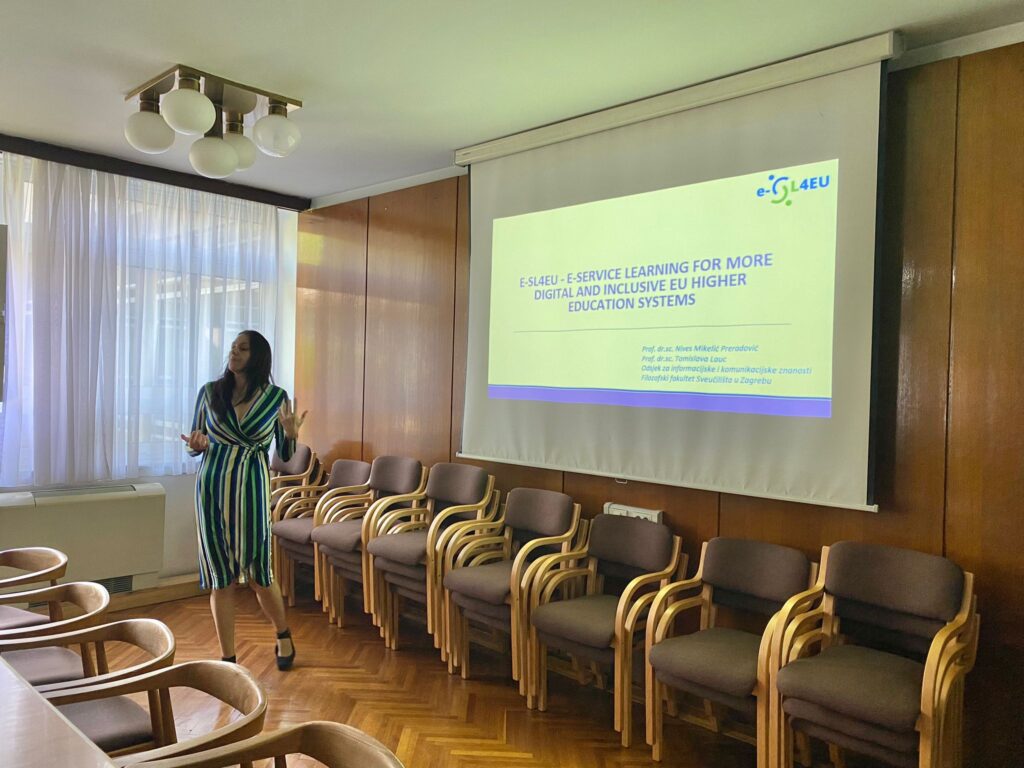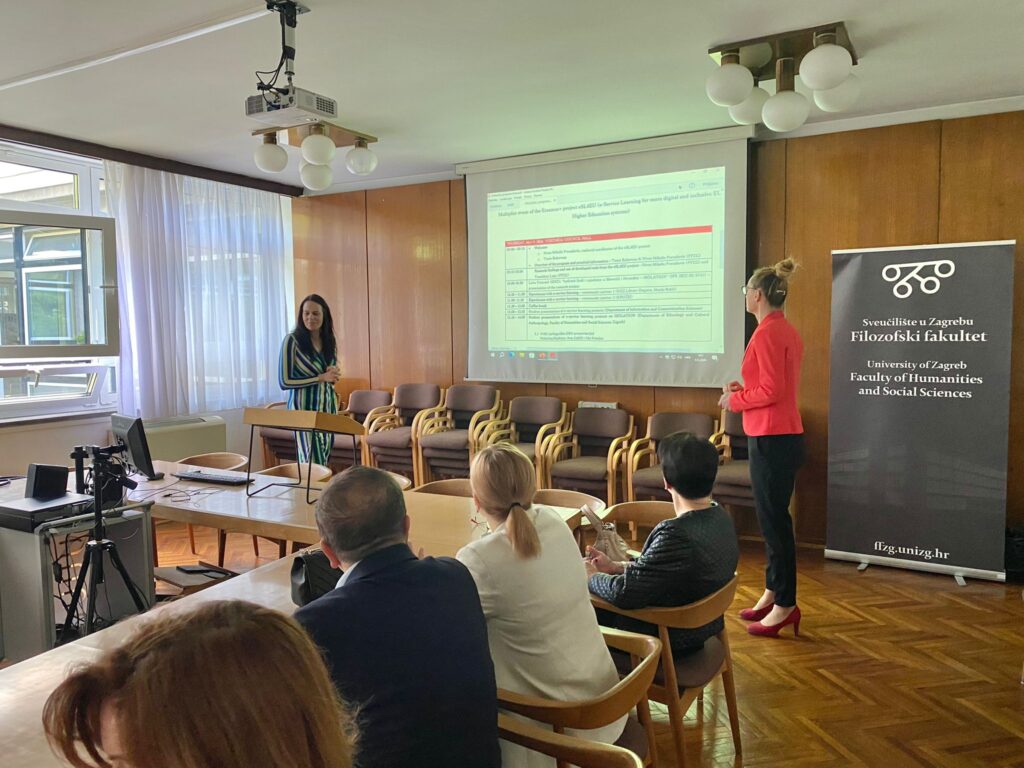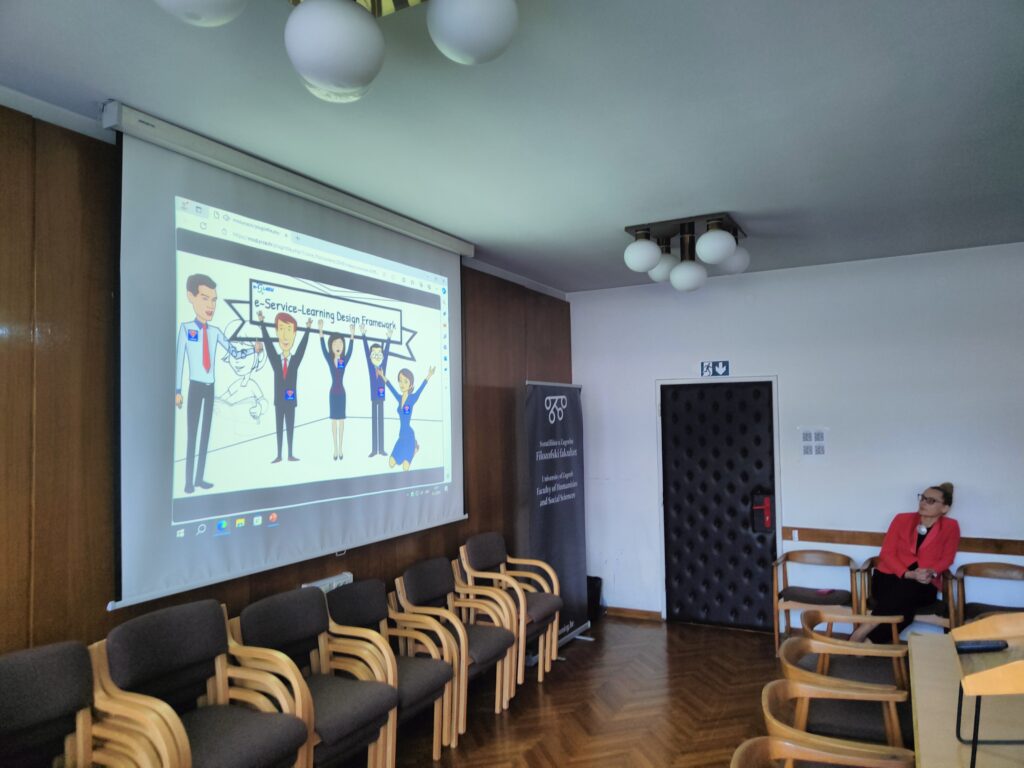On May 9th, 2024, Faculty of Humanities and Social Sciences (FFZG), University of Zagreb, organized the Multiplier event of the eSL4EU project whose main objective was to present the research findings and all project results (PR1 to PR6) and to provide the participants with a practical experience on the use of the developed tools.
The event aimed at strengthening the exchange of knowledge and best practices among key organizations and at disseminating the work and results of e-SL4EU within and beyond the partnership. Therefore, during the event attendees had a chance to learn about the e-SL projects that were co-designed in collaboration between eSL4EU project and the EU project ISOLATION (Isolated people and communities in Slovenia and Croatia).
The audience was composed of the target groups of the project: HE teachers, HE students (including also the ones with fewer opportunities) and community agencies.
Among participants were 37 participants from the following Croatian institutions (VERN University, Algebra University, Zagreb University of Applied Sciences, University of Rijeka, Università Istriana di scienze applicate, Public Polytechnic Baltazar Zaprešić, University NORTH, Croatian Catholic University, Cultural Center Travno, Institute for Youth Development and Innovation, Libraries of the city of Zagreb, NGO Kruzej, Agency for Mobility and EU Programs, Institute for Educational Development, Sports Gymnasium Zagreb, Migration research institute, Institute for social research) and 4 participants from Slovenia: University of Ljubljana and Alma Mater Europaea from Maribor.
During the event, Nives Mikelic Preradovic from FFZG showed the main data collected in Croatia through the evaluation forms completed by different target groups (HE teachers, students, community organizations), particularly the main information relevant for community organizations (PR3) and the main weaknesses of strengths of e-SL (PR4).
The community impact and students skills that were developed during the e-SL projects (PR5 & PR6) were presented by students from the Department of Information and Communication Sciences and students from the Department of Ethnology and Cultural Anthropology.



